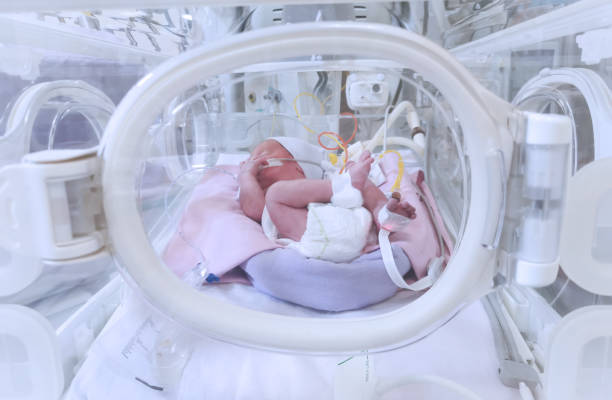TSH refers to “thyrotropin” or “thyroid stimulating hormone” which is released from the pituitary gland.
It stimulates the thyroid gland to produce T3 and T4 (thyroid hormones).
They play an important role in all metabolic processes of the body, digestive activities, and growth development.
There is an optimal normal range for TSH levels in males and females.
The average in adult males aged 31-50 years old =0.4:4.15 mIU/L.
While the average in adult females aged 30-49 years old=0.4:4.0 mIU/L (pregnant women fall outside range).

The role of TSH in pregnancy
Thyroid hormones are very important in pregnancy for fetal growth and development.
Its level isn’t constant as it differs according to each trimester and it isn’t the same as non-pregnant.
During the first trimester, the baby depends completely on the mother’s supply from the placenta not only oxygen and food but even the hormones specifically the thyroid hormones.
Which are crucial for the baby’s physical and mental development until around the first 12 weeks.
Then after that, the baby's thyroid gland becomes developed and can work on its own.
But it doesn’t produce sufficient thyroid hormone until 18 to 20 weeks.

Complications of high TSH during pregnancy
Hypothyroidism in pregnancy is considered a common case as it occurs in 15-28% of pregnant women in iodine-insufficient areas.
It is divided into overt hypothyroidism as TSH is high and free T4 is low and subclinical hypothyroidism as TSH is high but free T4 is within normal range.
Low thyroid hormones during pregnancy as a result of high TSH can cause low birth weight, fetal distress, preeclampsia, placental abruption, and preterm delivery.
In severe cases, it can lead to miscarriage if the TSH level is left uncontrolled.
For this reason, we can conclude that it is very important for any pregnant woman to check the TSH level in different stages of pregnancy.
Especially in the first trimester to ensure there is no disorder in the maternal or fetal health.
And if there is it will be easily and early identified and treated to have a healthy and safe pregnancy.

Causes of high TSH during pregnancy
Autoimmune thyroiditis “ Hashimoto’s disease”.
Autoimmune diseases.
Iodine deficiency.

Symptoms of high TSH during pregnancy
- Fatigue
- Weight gain
- Constipation
- Excessively feeling cold
- Muscle cramps
- Concentration problems
- Depression
When to suspect high TSH levels during pregnancy?
Presence of thyroid peroxidase (TPO) antibodies previously.
Recurrent miscarriage or preterm delivery.
Living in insufficient regions of iodine.
Family or personal history.
Autoimmune disease.
Type-1 diabetes.
ATA- Scale for TSH normal level in pregnancy
The American Thyroid Association (ATA) recommends that the normal TSH level in the first trimester is (0.1-2.5) mIU/L.
In the second trimester is (0.2-3) mIU/L and in the third trimester is (0.3-3.5) mIU/L.
The American Endocrine Association also stated that (0.1-2.5) mIU/L is the normal range in the first trimester>
And recommended thyroxine treatment for pregnant women with TSH level >2.5 mIU/L in the first trimester>
TSH level >3.0 mIU/L in the second and third trimesters and the European Thyroid Association had similar recommendations.
New clinical guidelines issued by ATA raised the normal upper limit for thyroid function during pregnancy to ~ 4.0.
Several guidelines have been offered for TSH levels in pregnant women but they are variable due to different races and ethnicities from different countries.
Correlation between HCG hormone and TSH hormone
HCG (human chorionic gonadotropin) is the major hormone produced by the placenta during pregnancy.
It is closely related to TSH so it can bind easily to the TSH- receptors.
Acting like a weak form of TSH to make the thyroid gland release excess thyroid hormone.
So high HCG can be associated with a high risk of subclinical hyperthyroidism.
Therefore the slight increase in thyroid hormones during early pregnancy is considered a normal matter.
And related to some symptoms such as high heart rate and morning sickness.
Is high TSH during pregnancy treatable
According to ATA, pregnant women with TSH levels>10 mIU/L in the first trimester should be treated for hypothyroidism with levothyroxine.
For pregnant women with a TSH range between (2.5 -and 10) mIU/L, and there are TPO (thyroid peroxidase) antibodies treatment is strongly recommended.
When the TSH range is between 2.5-4 mIU/L or above 4 mIU/L, but there are no TPO antibodies.
The current recommendations suggest that treatment may be considered when TSH is within the range of 2.5-10mIU/L.
These recommendations are based on the degree of benefit/risk ratio of levothyroxine treatment during pregnancy.

What is the plan for the treatment of high TSH during pregnancy
According to ATA, hormone replacement therapy is the adequate goal for hypothyroidism pregnant women who are suffering from high TSH during pregnancy.
Thyroid function tests should be done every 4 weeks during the first half period of pregnancy to ensure that the thyroid levels are normal and it functions well.
There is a very important notice that should be known while administering levothyroxine during pregnancy, there is a drug-drug interaction between the prenatal vitamins as iron and calcium supplements and levothyroxine.
So the separation between the levothyroxine and prenatal vitamins should occur by at least 4 hours.
SummarizationHigh TSH during pregnancy is a condition that causes overt or subclinical hypothyroidism.
And both cause long-lasting effects on the baby’s intellectual development if it is left untreated.
By communicating with the specialized doctor, further evaluation, following medical directions, and regular follow-up.
The TSH level will return to its normal range and there will not be any danger to the mother’s or baby's health.
Read more about:


You must be logged in to post a comment.